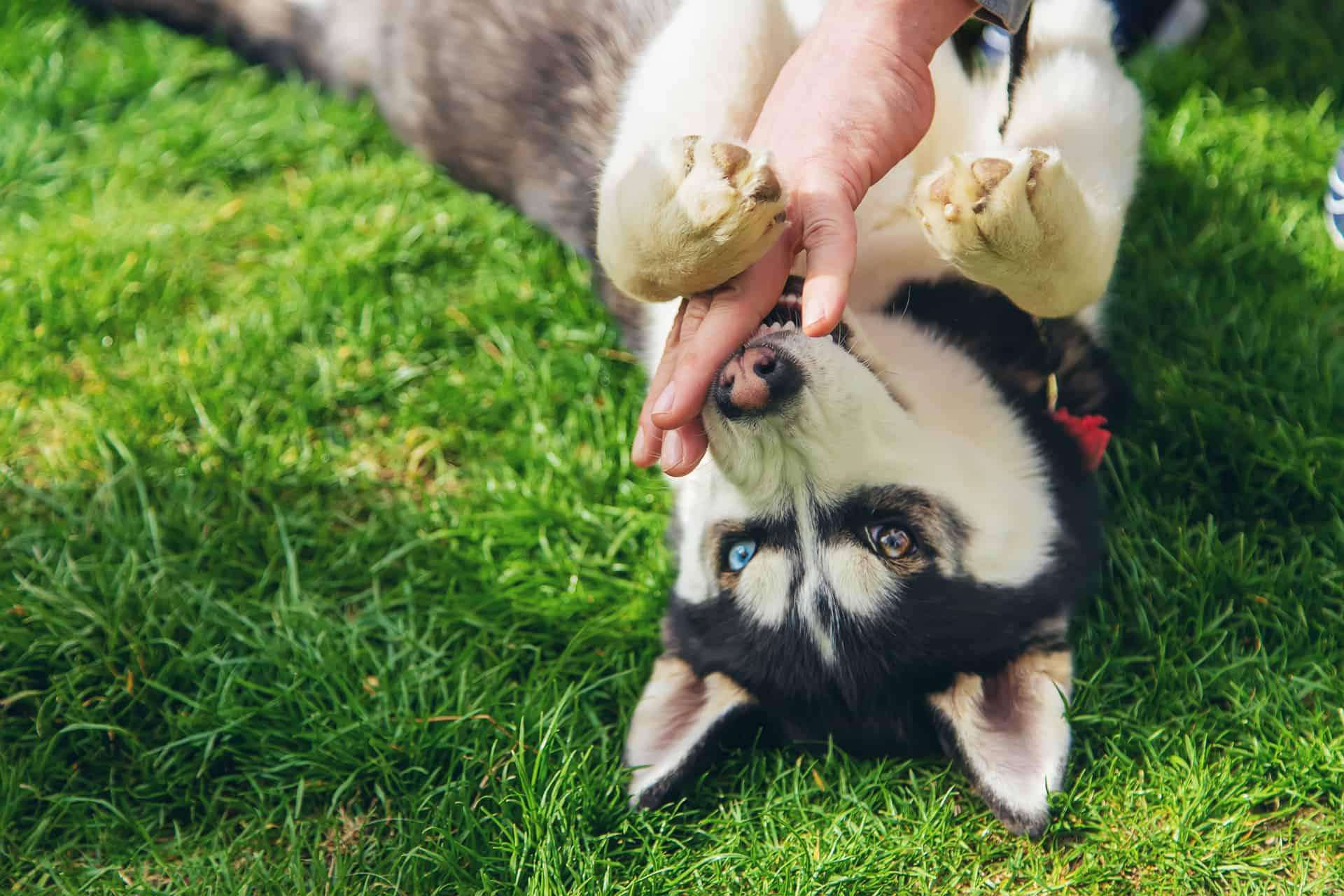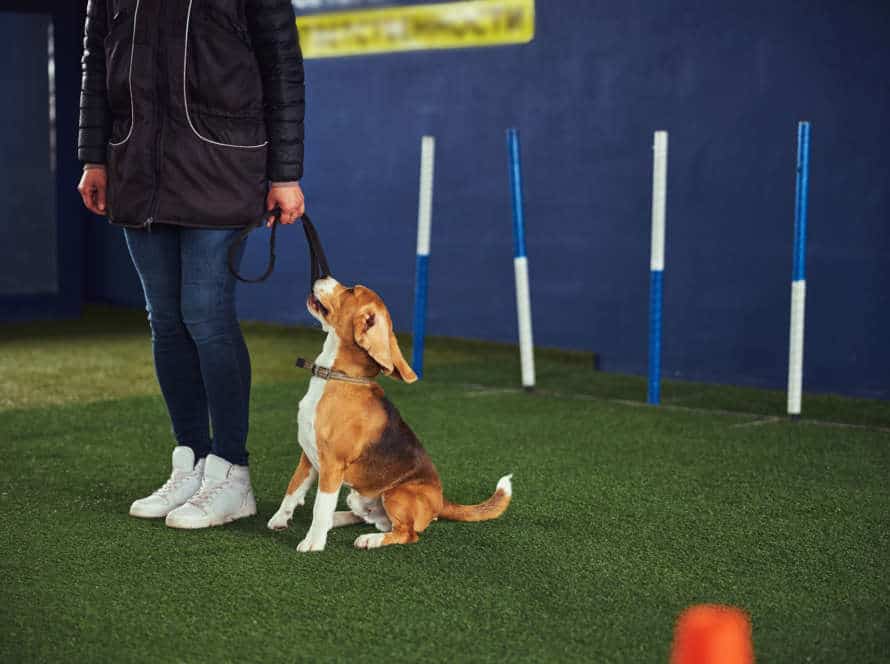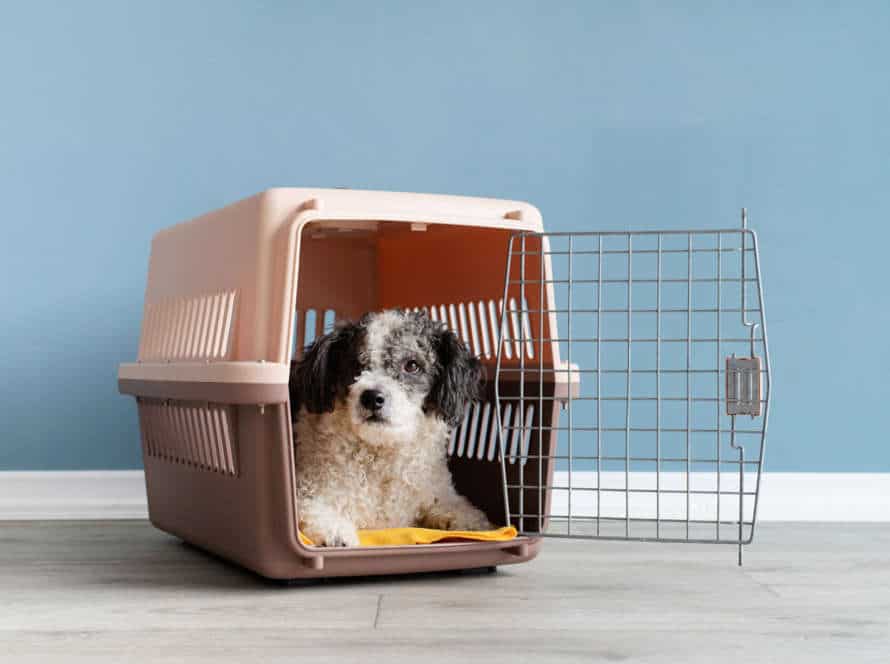The Role of Training and Mental Stimulation in Preventing Biting Issues
Training and mental stimulation are essential to stop biting in dogs. Without it, they can get bored and act out with biting. Here’s how training and mental stimulation can help:
- Training teaches dogs proper behaviors and commands. It lowers the chance of biting out of fear or confusion.
- Mental stimulation activities like puzzles, obedience training, and interactive toys can keep dogs busy and stop boredom-related biting.
- Exercise and playtime can also help release pent-up energy to avoid biting.
Remember, biting can also be due to health or behavioural issues. If it persists, talk to a vet or dog behaviourist.
Understanding the Causes of Biting Issues
Biting in dogs can have a secret reason, not related to aggression. Such behavior can come from inadequate instruction and insufficient mental stimulation. To tackle biting issues effectively, it is vital to understand the source and triggers. Knowing the causes of biting can help owners decide the best approach and give their dogs suitable training and stimulation.
Nature Vs. Nurture: Is Biting Instinctual or Learned?
Is biting behavior in dogs instinctual or learned? Dog trainers and behaviorists debate this. Some dog breeds, like Pitbulls, have a reputation for biting more than others. But, genetics or breed traits are not the only cause of biting.
A lack of training, socializing, or mental stimulation can lead to biting. Socialize puppies with other animals and people. Mental activities, such as exercise, interactive toys, and puzzles, can help prevent destructive or aggressive behaviors.
Biting is not certain in certain dogs. Training, socializing, and mental stimulation can help prevent it. If you have biting issues with your dog, consult a certified dog trainer or behaviorist. They can discover the reason, and give solutions.
Common Triggers for Biting in Dogs
Dog biting is a huge concern that needs prompt action. Fear, anxiety, pain, and territorial behavior can be reasons why dogs bite. Knowing why a dog bites is crucial to stop it. Training and mental stimulation are needed to avoid this issue.
Here are some tips:
- Exercise and playtime can lessen a dog’s anxiety.
- Positive reinforcement should be used to reward good behavior, and discourage bad behavior.
- If a dog seems in pain, take them to the vet.
- Teach your dog basic commands like “sit,” “stay,” and “leave it” to make them act better in different situations.
Pro Tip: Socialization is essential to prevent biting. Make your dog meet people, other animals, and diverse places to make them more confident and less reactive.
The Link Between Biting Issues and Lack of Training/Mental Stimulation
Biting in animals is often linked to insufficient training and mental stimulation. It’s key to understand the source of biting issues to stop them.
Animals have natural instincts and need both mental and physical stimulation to stay content and healthy. If they are bored or don’t get enough mental and physical exercise, destructive and violent behaviors may occur, such as biting.
Training teaches pets what is acceptable and unacceptable in human environments. It helps them learn discipline and better connect with your family life. Mentally stimulating activities are just as important to keep pets occupied and happy.
Some ways to provide mental health stimulation are through games, puzzle toys and allowing your pet to learn new things. Physical exercise is also necessary, like daily walks or runs, because many biting issues may be caused by built-up energy levels.
By giving appropriate training and providing mental and physical stimulation, you can avoid biting issues and have a healthy, satisfied animal.
Training for Bite Prevention
Training and mental stimulation are essential for stopping biting issues with your pet. Training teaches your pet good habits, and gives them a chance to learn and build trust. Mental stimulation helps them use their energy in productive ways. Here’s how you can use training and mental stimulation to prevent biting issues in your pet.
Teaching Basic Obedience Commands
Basic obedience commands are essential for a well-trained pup. Teaching them obedience not only prevents behavior problems, like biting, but strengthens the bond between you and your furry friend. Here are some tips:
- Start with the basics. “Sit“, “stay“, and “come” are great starting points. Practice these daily for a few minutes until your pup has them down.
- Use Positive Reinforcement. Treats, praise, and toys can all be used to reward good behavior. Never use physical punishment or negative reinforcement – this can lead to aggression.
- Be Consistent. Use the same commands and reward system each time. Dogs love routine and consistency, so the more consistent you are, the sooner they’ll learn.
- Make it Fun. Keep sessions short and fun. Toys, games, and treats can make the experience enjoyable for your pup.
Regular training and mental stimulation can keep dogs healthy and happy.
Pro Tip: Train young dogs early, but older ones can still learn. If you need help with dog training, consider hiring a professional.
Socialization Strategies for Bite Prevention
Train and mentally stimulate your dog to prevent biting. Socialization is key. Here’s how to do it:
- Start early – get your pup used to people and other dogs.
- Positive reinforcement – use rewards to encourage good behavior.
- Gradual exposure – introduce your dog to different places, people and animals.
- Be consistent – stick to the same plan to reinforce good behavior.
- Supervise – watch your dog when around kids or other animals.
Do all this, and you’ll have a happy, healthy pup, free of biting issues!
Counter Conditioning for Biting Prevention
Counter conditioning is a way to stop your dog from biting. Here are the steps:
- Find the things that make your pup bite, like touching their food bowl or taking away a toy.
- Put the trigger in a safe and happy environment, like during training.
- Make the trigger something nice, like treats, praise, or playtime.
- Little by little, make the trigger stronger and the reward last longer.
With consistent counter conditioning, your pup will learn to link bad triggers with good things. Plus, give them mental stimulation with training and playtime to stop boredom and frustration, which can lead to biting.
Mental Stimulation for Bite Prevention
Training and mental stimulation are essential for stopping biting issues with your furry pal. Offer mental stimulation and training to your pet for better habits and a sense of purpose. This will also help you control their behavior and stop them from biting. Let us take a deeper look at how mental stimulation and training can assist in preventing biting issues.
Understand the Importance of Mental Stimulation
Mental stimulation is vital for avoiding dog-biting incidents. Dogs that are mentally stimulated are less likely to act out and be aggressive, making them less likely to bite.
Training and tasks like puzzle toys, scent games, playing, obedience training and agility training are great for keeping a dog mentally active and stimulated. This stops them from getting bored and from displaying destructive behavior like biting.
It’s essential to give your dog daily mental stimulation to stop biting issues. Having a daily routine that includes fun activities can stop your dog from feeling bored and acting out. Also, giving your dog an outlet for their energy can help stop aggression and other problems from happening.
Remember, mental stimulation is as important as physical exercise and nutrition when it comes to having a healthy, happy and well-behaved dog!
How to Provide Adequate Mental Stimulation to Prevent Biting
Preventing biting issues in dogs needs adequate mental stimulation. Training and games can keep boredom and anxiety away; both are common causes of biting behavior.
To give mental stimulation, try activities like obedience training, interactive feeding games, puzzle toys, scent games, and agility training. These will help your dog use energy properly, focus attention and learn problem-solving skills.
In addition to training, a stimulating environment is important to stop biting. That can mean taking walks or playing in new places with new sights, sounds, and smells.
Providing mental stimulation is a process that needs patience and consistency. Gradually, your dog will learn to direct its energy into positive behaviors and biting will not be an issue.
Pro tip: If you see any signs of aggression, get help from a professional dog trainer or behaviorist right away.
The Role of Routine in Providing Mental Stimulation
Having a routine is key to giving your pup mental stimulation and avoiding biting issues. Dogs need mental stimulation to stay interested and prevent destructive behaviors. Here’s how a routine can help:
- Feed your pup at the same time and place each day.
- Take your pup for a walk at the same time each day.
- Offer interactive toys, food puzzles, or treats to keep them engaged.
- Train your pup with positive reinforcement techniques to build trust.
Pro Tip: Establish a consistent routine to keep your pup secure and engaged, while preventing any biting issues that can arise from boredom and lack of stimulation.
The Importance of Consistency in Preventing Biting
Consistency is vital to stop biting in dogs. Training and mental stimulation are musts for your pup to learn how to obey and concentrate. Everyday reinforcement of commands and rules can give your doggy a higher chance of doing well in the long run. Let us explore why consistency is so critical and what advantages it has.
Consistency in Training Techniques
Consistency is key to stop biting in dogs. The same techniques help you show your pup what you want. Here are some tips:
- Decide acceptable and unacceptable behaviour. Set up a routine to reinforce the right actions.
- Use the same words and non-verbal cues when talking to your dog. Consistent communication helps them understand.
- Make sure your dog gets mental stimulation and exercise. This stops boredom and destructive behaviour.
- If biting happens, divert their attention and reward them for good behaviour. Positive reinforcement works better than punishment.
By being consistent, you give your pup the best chance of success and make your home a happy place.
Consistency in Providing Mental Stimulation
For preventing biting in pets, consistency in mental stimulation is important. Mental stimulation activities are an efficient way to keep your pet’s brain occupied and stop them from acting destructively or aggressively.
Here’s what you can do:
- Set aside time for play and training every day.
- Give toys that challenge and stimulate your pet’s mind.
- Change your pet’s toys regularly to keep them entertained.
- Instruct your pet in new commands and tricks to keep their mind active.
- Be consistent with training and positive reinforcement.
Lack of consistency can lead to confusion and frustration in pets, which can lead to biting. By offering regular mental stimulation, you can stop biting and foster a healthier bond with your pet.
How Inconsistency Can Lead to Biting Issues
Inconsistency in behavior and training can lead to biting issues in dogs. Establishing consistent rules is key; reward good behavior and ignore/redirect bad behavior. Inconsistent discipline can cause anxiety and aggression.
Training and mental stimulation are also essential in preventing biting. Dogs need physical exercise, mental stimulation, and socialization to channel their energy positively and develop healthy behavior.
Consistency is vital to prevent biting in dogs. If you are unsure about training, behavior, or biting, seek professional help.
Frequently Asked Questions
Q: How does training help prevent biting issues in dogs?
A: Training helps dogs to understand what is acceptable behavior and what is not. By teaching them proper commands and manners, dogs are less likely to resort to biting as a form of communication or defense.
Q: What types of mental stimulation can prevent biting in dogs?
A: Mental stimulation can come in various forms such as puzzle toys, scent work, obedience training, and interactive playtime. By providing dogs with mentally stimulating activities, they are less likely to become bored and resort to undesirable behaviors like biting.
Q: Are certain breeds more prone to biting than others?
A: While some breeds may have a higher disposition towards aggressive behaviors, any dog has the potential to become aggressive if not properly trained and socialized. It is important to focus on individual dog behavior and not just make assumptions based on breed stereotypes.
Q: Can biting issues be fixed through training?
A: Biting issues can be addressed and fixed through proper training and behavior modification techniques. It may take time and patience, but with consistency and positive reinforcement, biting behavior can be significantly reduced or eliminated.
Q: Can I train my dog to stop biting on my own, or should I hire a professional?
A: While some biting issues can be fixed through self-training, more severe cases may require the help of a professional dog trainer or behavior specialist. It is important to assess the severity of the biting behavior and determine whether professional assistance is needed.
Q: Is it important to socialize your dog to prevent biting?
A: Yes, socialization is an important aspect of preventing biting in dogs. Proper socialization exposes dogs to different situations, people, and animals, which helps them learn how to react appropriately in different situations and improve their overall behavior.







